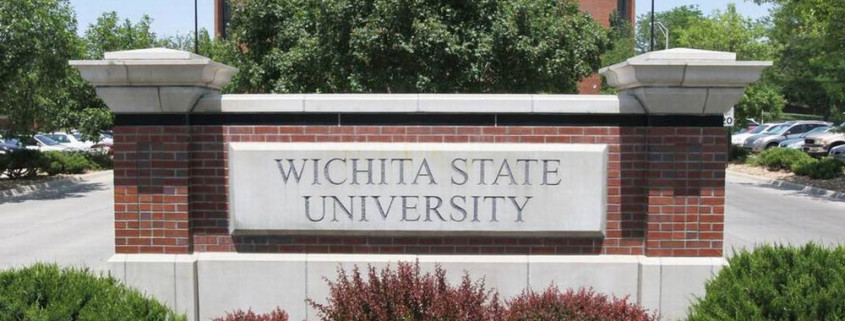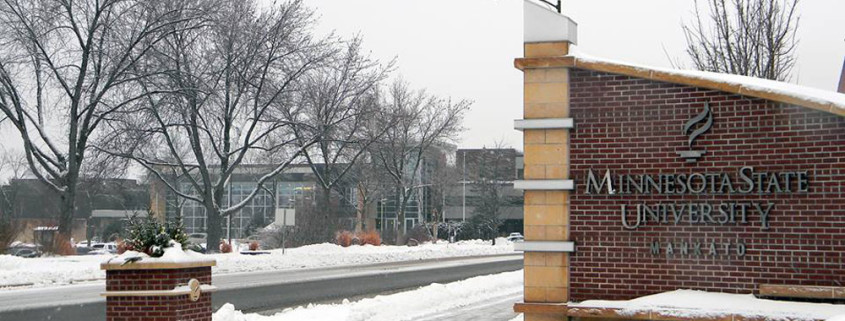Imagine Yourself in The World’s Top Study Abroad Destination !!
” USA is commonly known as the ‘land of opportunity’. Fifty states make up the USA and the country offers a wonderful combination of amazing cities, quaint towns, great beaches, brilliant oceans, sprawling farmlands, unique deserts, gorgeous lakes, winding river and incredible waterfalls.
The USA is the third largest in the world by land area and population; it is also recognised as one of the world’s most socially diverse nations, which is a direct result of a massive wave of immigration from every part of the globe. America is a melting pot of cultures and people from around the world. They are extremely friendly, hospitable, kind and accepting of foreigners. The climate ranges from sub-tropical to arctic, although most of the country is temperate, with four distinct seasons ”
 WHY SHOULD YOU STUDY IN UNITED STATES ?
WHY SHOULD YOU STUDY IN UNITED STATES ?
The USA has the world’s largest international student population anywhere in the world. Looking at current world statistics for higher education, of the 1.2 million students pursuing post secondary education outside their home countries, more than one-third choose to study in the United States. The trend over the years has been increasingly towards the US and a lot of people are beginning to notice. But the question remains, why is the US such a popular destination for a lot of aspiring minds? What does the US offer others seem not to have as much? Here are some pointers.
Academic Excellence
Looking at the top 100 universities in the world, one can easily see a great majority of them come from the US. The United States has one of the world’s finest university systems, with outstanding programs in virtually all fields. At the undergraduate level, excellent programs exist in traditional disciplines as well as in professional fields. At the graduate level, students often have the opportunity to work directly with some of the finest minds in the world. U.S. degrees are recognized throughout the world for the excellence.
Variety of Educational Opportunities
The higher education system in the United States has something for everyone. With the colleges and universities stressing on a range of educational aspects one can easily find the area of focus intended. Some programs focus on study abroad educational principles: others stress practical, employment-related skills; and still others specialize in technical fields, the arts, or social sciences. As a result, if you are looking for an institution where you can study a particular field – no matter how unusual or specific – you can usually find several from which to choose in the United States.
Cutting-Edge Technology
U.S. universities pride themselves on being at the forefront of technology and educational techniques, and in making available to their students the best possible equipment and resources. Even if your field does not directly involve science or engineering, you will become skilled in using the latest technology to obtain and process information. You will find ways to stay connected with people in your field all over the world.
Opportunity for Research, Teaching and Training
If you are a graduate student, you may be able to gain valuable experience in research or teaching while you help to finance your education. This practical component of your education will prove useful in your future career and may give you insights into your field that would not be possible through course study alone.
International students are some of the most valued researchers and teachers in U.S. universities because they bring new skills and ideas to the classroom and laboratory. Many graduate programs in the United States offer training that enables students to become teaching of research assistants.
Flexibility
Although many programs are highly structured, you will generally find many course choices. At the advanced stages of a degree you will be able to to tailor your course work to fit your specific needs. When you choose topics for independent study for a graduate thesis or dissertation, you can emphasize ideas that are important to you, your field, and your country.
Support Services for International Students
At most institutions, services from the international student office help students from abroad to live and learn in their new environment. From orientation programs at the beginning of your degree program to assistance with resumes as you get ready to graduate, you will find people at the university and in the community who are interested in your success.
Campus Life
U.S. universities provide a rich variety of academic, cultural and athletic activities that add new dimensions to your educational experience and also help you make new friends.
Global Education
Experience in an international setting is a marketable commodity. Your long-term career prospects can be enhanced by experience that develops self-confidence, independence, and cross-cultural skills – attributes in demand by employees world-wide.
AMERICAN EDUCATION SYSTEM AT A GLANCE
The richness and diversity of the American higher education system is second to none in the world. Over 4,000 recognized institutions of higher learning and more than 900 fields of study available, the diligent student can find schools that will provide an excellent education in almost any field of study. Higher education is provided by Colleges or Universities, Junior or Community Colleges, Professional Schools, or technical Institutes and begins in the thirteenth year of school. There is no pre-university programme in the American system. A two-year “junior” college offers an Associate Degree. A four-year college or university programme offers a Bachelor’s Degree.
Tertiary institutions may be either public or private. Public institutions are funded by the respective states but they are administratively independent. Private institutions are independent financially as well as administratively.
There is no distinction between Science & Arts students; all first year undergraduates study almost the same subjects irrespective of their course of study. This gives students time and opportunity to decide on their desired course after the first year.
Universities and colleges use a system of credits. Under this system, students are required to complete a certain number of credits in order to graduate. Students typically take five courses of 3 credit hours each semester, with approximately 120 to 130 credit hours required for graduation. Students may obtain additional credits during a semester by enrolling in additional classes to graduate early with approval by individual institution.
There are two calendar systems used by the universities although the semester system is by far the most widely used calendar:
Semester system:
First semester (fall): Early September – Mid December
Second semester (spring): Mid January – Mid May
Summer season (optional): June – August
Quarter system:
First Quarter (fall): Mid September – Early December
Second Quarter (winter): Early January – Mid March
Third Quarter (spring): Early April – Mid June
Fourth Quarter (optional): Mid June – Mid September
BASIC ENTRY REQUIREMENTS FOR INTERNATIONAL STUDENTS
ACADEMIC REQUIREMENTS:
Undergraduate Admission: HSC or GCE “A” Level (a minimum of two principal passes in the appropriate subjects), Canadian Pre-University Program, the Australian matriculation or International Baccalaureate. A few universities in USA also accept the Year 11 Qualification or GCE ‘O’ Level (all credit) for conditional admission for pathway/Foundation program. Minimum requirements of marks (CGPA) differ based on institutions and study programs.
Graduate Admission: A four/three-year undergraduate degree programs (or equivalent) which is recognized in credential issuing country as well as in USA. Student with pre-master’s program from recognized institution is also eligible for admission in master’s program. Minimum requirements of marks (CGPA) differ based on institutions and study programs. Student who has completed masters program with required results and other supporting academic achievements can apply for admission in doctoral admission.
LANGUAGE PROFICIENCY REQUIREMENTS:
Acceptable proof of proficiency in English such as TOEFL or IELTS or English Placement Test. The required English proficiency test scores vary from one institution to another based on students admission level. Students, who do not meet the TOEFL or IELTS requirements, will be required to complete an English as a Second Language (ESL) program in an accredited Canadian institution.
TEST SCORE REQUIREMENTS:
SAT is not mandatory but considered as advantage to get admission in most of the institutions for undergraduate programs.
GRE (non-business) / GMAT (for MBA/other business related field) is typically an advantage (not mandatory) for entry into master and doctoral programs in most institutions.
| BOOK AN EVENT PLACE |
|---|
| SIGN UP FOR SCHOLARSHIP |
| CHECK APPLICATION STATUS |
| REQUEST AN ADVISING POST |
| SCHEDULE FREE COUNSELING |
| SCHEDULE PSYCHOMETRIC TEST |
| REQUEST PERSONALISED INFORMATION |








